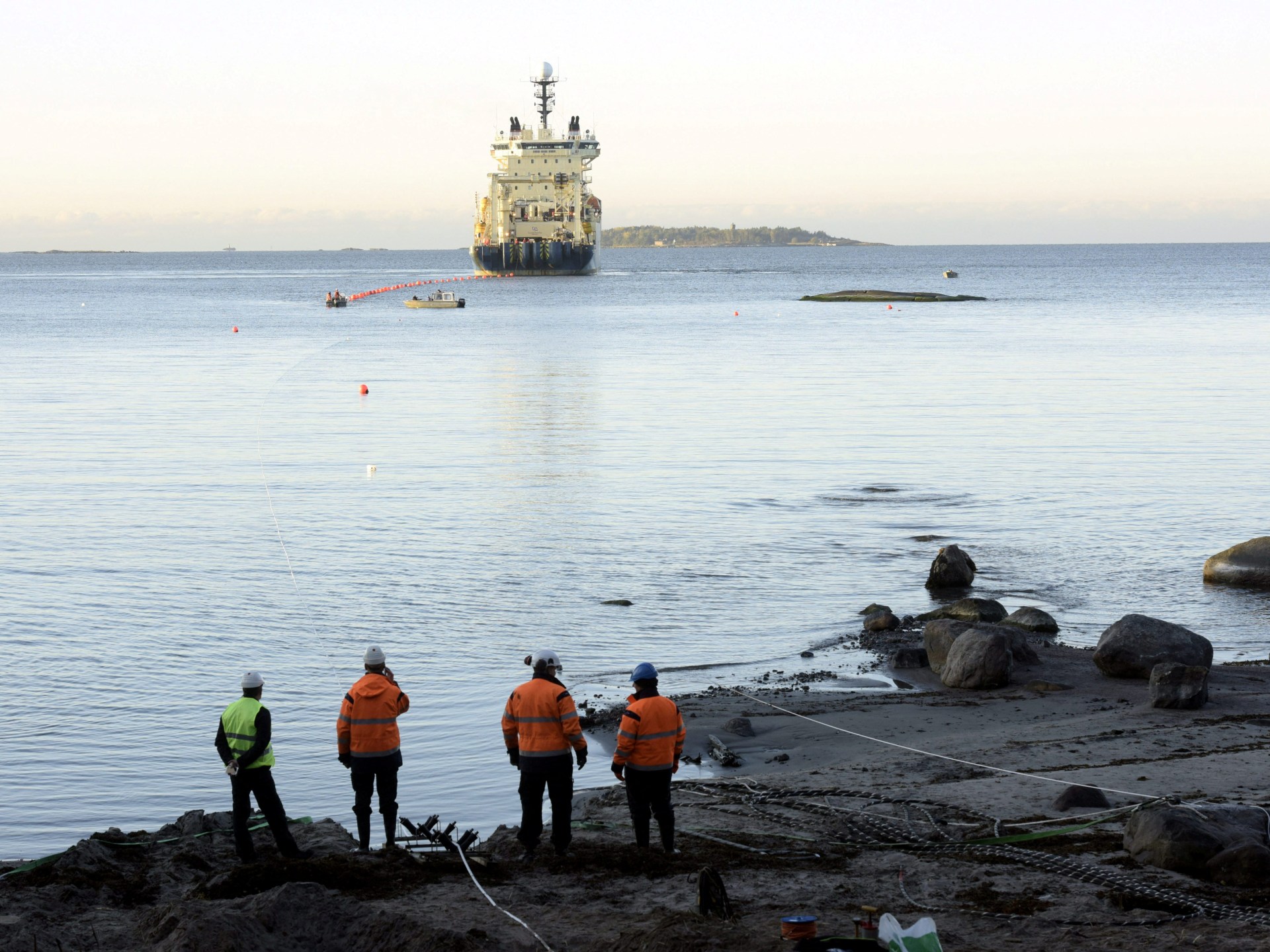

NATO chief Mark Rutte says the US-led military alliance will launch a new mission to protect undersea cables in the Baltic Sea region.
Rutte made the announcement at a meeting attended by the leaders of Denmark, Estonia, Finland, Germany, Latvia, Lithuania, Poland and Sweden in the Finnish capital, Helsinki, on Tuesday.
“It will involve a range of assets, including frigates and maritime patrol aircraft, among others, and will enhance our vigilance in the Baltic,” the secretary general told reporters.
Rutte also said that under the so-called Baltic Sentry mission, a small fleet of naval drones will be deployed “to provide enhanced surveillance and deterrence”.
The Baltic Sea has been the scene of several high-profile infrastructure incidents since the onset of Russia’s full-scale invasion of Ukraine in February 2022.
In September 2022, a series of underwater blasts ruptured the Nord Stream pipelines that carried Russian gas to Europe, the cause of which has yet to be determined.
Advertisement
No one has claimed responsibility while Russia, without providing evidence, has repeatedly said the attack was carried out by the United States and United Kingdom, both of whom have denied the allegations.
In October 2023, an undersea gas pipeline between Finland and Estonia was shut down after it was damaged by the anchor of a Chinese cargo ship.
Most recently, Finland reported that Eagle S tanker had been detained in connection with a subsea cable damage incident that occurred on Christmas Day.
Rutte said more than 95 percent of internet traffic is secured via undersea cables, with 1.3 million kilometres (808,000 miles) of cables guaranteeing an estimated $10 trillion worth of financial transactions daily.
“Across the alliance, we have seen elements of a campaign to destabilise our societies through cyberattacks, assassination attempts and sabotage, including possible sabotage of undersea cables in the Baltic Sea,” Rutte said.
Rutte said NATO’s adversaries must know that the alliance will not accept attacks on its critical infrastructure, underlining that “we will do everything in our power to make sure that we fight back”.
Swedish Prime Minister Ulf Kristersson told reporters as he arrived for the meeting in Helsinki that it was “totally unacceptable that these damages seem to have been increasing in numbers recently” but expressed caution in apportioning blame.
Related News

US says Sudan’s RSF committed genocide, announces sanctions on leaders

Israel acknowledges it assassinated Hamas leader Haniyeh for first time

Will Iran build a nuclear bomb while Trump is in power in the US?


